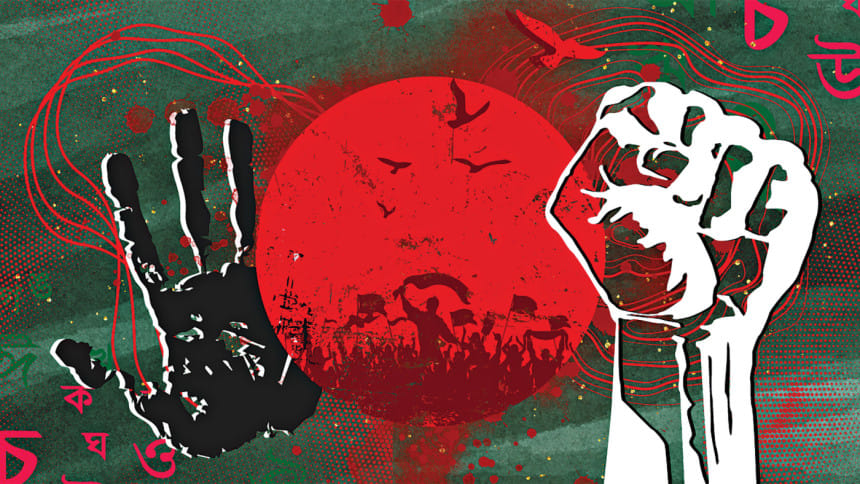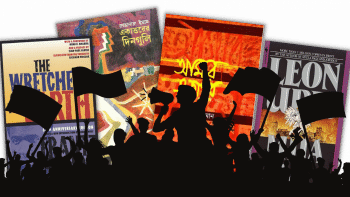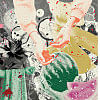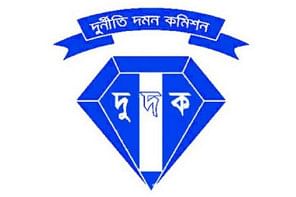The English-Bangla conundrum continues

When my literature professor heard I had been delving into Bangla literature and cultural media in pursuit of a self-undertaken project to finally learn Bangla, she suggested I see the 1970 film Jibon Thekey Neya. Set in the broiling atmosphere of a nation in labour (that is, East Pakistan before the birth of Bangladesh), Jibon Theke Neya is a critically acclaimed film that flips gender roles to, satirically and symbolically, depict the dictatorship of Ayub Khan through an authoritarian woman who runs her household as he does the nation. For instance, she parallels the Pakistani dictator in her oppression of the men of the house and in her denial of any knowledge of the Language Movement on 21st February. As I saw this film, my struggle with Bangla orchestrated a silent raging as if it fancied itself the film's score. I tried to grasp at words I didn't know, sentences I couldn't comprehend—they seemed to slip from between my fingers. Against such a backdrop, I take from my life these reflections, prompted by a film taken from those lives that were engaged in the independence struggle.
At the heart of the film lies a twofold thematic tension—that of the public sphere and the private sphere, the line between which is blurred. With the authoritarian household ruler symbolising West Pakistan, the men's rebellion against her comes to mimic East Pakistan's rebellion against the West on a smaller scale. When the matriarch's husband asks Mr Anwar, an ideal political activist, how to address the issue of tyrannical rule in a household, as protestors conduct movements against it in the public sphere, his answer is to do the same: to revolt against the household ruler. Posters and placards then decorate the house as the men protest against the enraged matriarch. Further, the camera alternates between two parallel scenes that occur simultaneously—Sathi, the newlywed sister in law of the matriarch-dictator, is being driven to her new house as Sathi's brother, the political activist, is being driven to dictator Ayub Khan's prison. By hinting that the house Sathi would now live in is also an oppressor's prison, the scene solidifies the personal-political analogy.
The personal and the political thus spill onto one another, as they intertwine also in Shahidul Zahir's novella about life before and after the Independence War, Jibon o Rajnoitik Bastobota (1988). These titles are telling and significant. They point to stories that unfold in a realm where the personal and the political are inextricably linked–such was the realm of the independence struggle. This merging of personal life with political reality, hence, seems a recurrent theme in independence narratives.
In both Raihan's film and Zahir's novella, there exists another blur—that between the individual and the collective. Bithi, wife of one of the men in the household, indignantly cries "My child…my keys…[to] my household." Her husband then urges her to cease thinking in terms of the "my" and think more selflessly in terms of the collective the way her brother, the political activist, does. The collective consciousness is also used as a crucial narrative technique in Zahir's novella which exemplifies just how strongly it encapsulates the ethos of pre-independence East Bengal.
Yet, I found myself ill-equipped to grasp the film in its entirety. Many of the dialogues escaped my comprehension. To give an idea about the status of my Bangla, I think it suffices to admit that I had neither ever heard of the famous Kazi Nazrul song "Karar Oi Louho Kopat", nor understood a single word of it when I heard it being played as a soundtrack in the film. When I found out that Nazrul had written it when he was imprisoned for revolting against British rule, it made me appreciate the film more in the sense that the protestors here were now singing this song while being imprisoned for revolting against West Pakistani rule.
But how did my Bangla reach this dire state?—you may ask. I suppose it has primarily to do with the English Medium curriculum I was educated in. Ironically, although it took bloodshed and war to establish Bangla as a state language, I still went to a Bangladeshi school where Bangla was a forbidden language. I still had a father who, despite kind intentions, went to great lengths to ensure I did not receive the one Bangla lesson my school offered, with the justification that Bangla would only confuse my English. The result: my understanding of Bangla became limited to everyday conversations that, too, were tainted by English.
Until this self-undertaken project of mine, I never made an effort to learn Bangla. First, because of family and school, and, later, because I myself had internalised that classic Anglophilic attitude: I used to pat myself on the back for reading and writing in English; I became obsessed with the language, but when it came to Bangla, I'd think—what's the point? Ignorant, I know, but I'm trying to make amends. I think this attempt at undoing the disconnect between me and Bangla stems from a state of desperation. The umbilical cord between me and my mother tongue was unjustly severed too soon. And in such a clinical severance, I was somehow a shameless collaborator.
This movement backwards to find a knot to tie, to find traces of an origin and collect them in the space left hollow within me, is prompted by a prolonged, gnawing emotion of detachment and alienation from my surroundings. After all, the English Medium bubble is barely one percent of the population; and we are notorious for ultimately fleeing the country. On the other hand, the language I am most comfortable in—English—isn't mine; it was thrust into my life as an imposition. This has created a neither-here-nor-there situation where I awkwardly straddle the threshold between two languages. I suppose that this "aporia in cultural experience", as my professor put it, made me a removed thinker. I fail to feel an emotional tie to any matter I write about, and such an objectivity can often feel disconcerting. Thus, this English-Bangla conundrum and its effect on the psyche should be investigated as a concern for future generations. I am reminded of the discussion during last year's Lit Fest led by my professors, entitled "The English-Bangla Conundrum"—to that I add this piece.
In the words of Jhumpa Lahiri: a language belongs to a certain land or people; it can migrate and spread, but it is generally tied to "a geographical territory, a country." Without penetrating the heart of a language, one cannot feel a meaningful connection with its land. When this language is one's mother tongue, things become messy, rife with confusion and identity crises. In Jibon Thekey Neya, land and people also become one. The political activist proclaims that he is one with the soil he has taken in his fist. I, however, fail to feel a remote trace of any such connection. But this absence has ignited a desire to find the mother whom I shut out, to gather the shattered pieces of that maternal bond so as to reconstruct it. My attempt to learn Bangla is also an attempt to unlearn Anglophilic habits–to erase the insidious remnants left in me by the Anglophiles who shaped me as a child, to undo their decisive stamp–an aspiration that takes for its inspiration the defiant call of independence.
Syeda Fatema Rahman is an undergraduate student majoring in literature at the Department of English and Modern Languages, North South University. Reach her at [email protected].

 For all latest news, follow The Daily Star's Google News channel.
For all latest news, follow The Daily Star's Google News channel. 









Comments